#riftwar
Text
At some point I should re-read Feist's Riftwar books. It's been 5+ years since I read them. I've kept a bunch of them on my shelf for mostly nostalgia reasons at this point.
They were among my first fantasy series obsessions when I was 13/14. I'd love to see if I still like them. 😜
#mostly i remember the big wifeguy energy 90% of the MCs had#cara reads 2024#riftwar#raymond e. feist
2 notes
·
View notes
Text
Alright, so I finished Silverthorn by Raymond E. Feist; here's my thoughts.
I sorta remember this book being really bad for two things: one is having really bad romance scenes, and the other was just general "middle book syndrome". Neither of these things were as pronounced as I remember them being.
With the romance stuff, yeah, it was still there, and it still a bit hard to get through. A lot of this is due to Carline and Anita being very bare bones characters in general and their arcs are almost entirely defined by being someone else's love interest, while the men they're interested in get to have arcs that aren't centred on them. Despite there being other books where this is a less prominent problem in Feist's attempts at romance, it's still an issue here.
I think this was particularly noticeable for two reasons. One is that it's a very front-heavy problem. Basically all the main romance scenes happened in the first half of the book. The other is that once they start getting into the actual adventure, the women in the book all essentially disappear. Sure, they're mentioned a couple of times, but they're not active participants in the story, and even during the period of time they are, it's barely an active participation.
Still, this wasn't as prominent an issue with Silverthorn as I remember it being. The amount of scenes this is an issue in is fairly limited, and they're all in the first half. I think the real issue is that the female characters really aren't treated as independent entities, despite some of Feist's other books (such as Faerie Tale and the Empire trilogy) proving he is capable of writing women passably when he wants to.
The second problem I remember from this book, that it was bad for "middle book syndrome", was less pronounced than I remember it being, too. Yes, a lot of what happens here is just setting the stage for what happens in A Darkness At Sethanon, but the overall arc of this book (especially with Arutha's plotline) would have been fine as a standalone book as well.
Really most of the middle book syndrome-y stuff is in Pug's plotline. While the Arutha-centric storyline in this book has a definable beginning, middle, and end, with some clear sequel hook stuff that's meant to set the stage for the next book, Pug's doesn't really have that. It's basically all just stuff that's meant to be setting up what comes next.
I think my actual issue is that Silverthorn is a bit of a slog to get through. It's not exactly boring--some of it is quite interesting--but it isn't as captivating as some of other Feist's books. I think I probably just wrote that off as middle book syndrome because I didn't really understand what that was at the time.
I think I have a much more forgiving outlook on this book today than I did back then. While ten or fifteen years ago, I would have struggled to find anything I liked about the book, now I can tell you a couple of things.
One is just a technical thing. The book has a "our story so far" section at the start which summarises the events of Magician. The next book, A Darkness At Sethanon, also has this (though it also goes over the events of Silverthorn as well). This is something that I really wish later Riftwar books would have because this is a much better option than having passages that amount to "...and this is Main Guy, who's been in the last six books, and this is the important information which was covered there, but we'll go over it again now in case you missed it."
I get doing something like that is sometimes necessary because you can't assume that everyone reading any given book is reading them back-to-back, in the correct order, or is even aware that there were previous books. Still, having the "our story so far" summary is my preferred way of approaching this over the "character summary 100 pages in" passages.
The other is worldbuilding. One of the thing that Magician didn't do as well as I would have liked is flesh out some of the different groups that live within the Kingdom. Silverthorn doesn't really spend a lot of time doing this either, but it does at least start doing it. It talks a little bit about some of the traditions of the Hadati hill people, it introduces the Nighthawks as a group of assassins, and so on. To some extent, this is still the generic fantasy world sort of stuff that Magician's worldbuilding suffered from, but it does provide some of the depth to Midkemia that it really needed.
4 notes
·
View notes
Text
Have you ever just looked up into the night sky and wept at the beauty of it all? Millions and billions of miles away in the black void lie roaring furnaces of light and fury, blazing their hearts into the darkness, sustaining the clashing of titanic forces at their very hearts, and all we know of their existence is the tiniest pinprick against the depth of emptiness above us.
Look, if you can, and you might find yourself drawing your own lines of constellations, finding patterns and pictures, building beautiful order within the magnificent chaos of our universe.
Nothing terrestrial can ever begin to encapsulate the sheer awe and wonder one can experience, gazing up at the sky and realising just how special and unique we are, and how blessed we must be to be able to experience that incredible sight which all other beings in existence that we know of are unable to comprehend it.
And to know that each blossoming beacon in the dark is a snapshot of something older than I can fathom, that I am gazing at the same stars my parents and grandparents saw at my age? That their grandparents were seeing? And theirs? Generations building upon generations, tracing back centuries of human history, all linked together under one eternal celestial backdrop. That is true magnificence.
I haven’t seen Good Omens S2 yet, but I’ve had enough clips show up online to spoil the relevant scene (I shall say no more), and even that pales in comparison to my wonder at the stars. The closest I have ever been to terrestrially capturing that feeling, for those who may get the reference, is in Raymond Feist’s “A Darkness At Sethanon”, in the garden, when Pug rewinds the spell, and he and his companions visit the very dawn of the universe.
Actually, in that scene, one of them suggests that the universe might have engineered the situation such that they would be there to witness its birth, knowing the glory of that moment and wanting to share it. I think that, if this world is anything like the fantasy of that one, we are fortunate indeed to have come around during the time in which the universe appears to be in the fullest motion it has ever been - well into its glory and its splendour, and well before it comes to its final rest, whatever that may be.
Space is incredible. The stars are unbelievably beautiful. Words cannot express the feeling of seeing them, tracing the lines between them, playing with a faded afterimage of the most incredible thing to ever exist. I would write poetry, if I were any good at it, to capture the almost sublime nature of it all.
#stargazing#stars#night sky#night skies#emotive#sublime#romanticism#awe and wonder#riftwar#riftwar saga#a darkness at sethanon#good omens#doctor who#autism#aspergers
5 notes
·
View notes
Text
#I've been have nostalgic thought on my series and thought I'd see how people feel about theirs#a song of ice and fire#asoiaf#Dune#Wheel of Time#The Dark Tower#The Riftwar Cycle#Shannara#the Shannara chronicles#george rr martin#frank herbert#stephen king#raymond e. feist#raymond e feisty#terry brooks#Robert Jordan#I assume asoiaf will sweep but I keep my hopes up for others with a fighting chance#macs book poll
1K notes
·
View notes
Text
Just a list of children’s books that did impact my life way more than Harry Potter.
#deaf#tiktok#queer#video#actor#books#middle grade fiction#fantasy#roman mysteries#rangers apprentice#riftwar saga#worst witch#anti jkr
1K notes
·
View notes
Text
So I'm reading darkness at sethanon, and coming up with crackpot theories about pug's parentage, such as macros is his dad, or a God is his father
1 note
·
View note
Text
⚠️Vote for whomever YOU DO NOT KNOW⚠️‼️


34 notes
·
View notes
Note
May I add the to the fantasy list
Farseer trilogy by Robin Hobb
Merovingen Nights by CJ Cherryh
Riftwar saga by Raymond E Feist
Green Rider series by Kristain Britain
Rider at the Gate by CJ Cherryh
Dresden Files by Jim Butcher
Codex Alera by Jim Butcher
Everworld By KA Applegate
The Wheel of Time by Robert Jordan
The Wandering Inn by Pirateaba
Vows and Honor by Mercedes Lackey
Dragonriders of Pern by Anne McAffery
Wiz Series by Rick Cook
that's all I got for now without adding more series by the same authors (notably Cherryh and Lackey)
I love getting these mile long lists lmao it's the kind of thing I'd submit. I've added them all!
#ask#submission#farseer trilogy#merovingen nights#the riftwar saga#green rider#rider at the gate#the dresden files#codex alera#everworld#the wheel of time#the wandering inn#valdemar: vows and honor#dragonriders of pern#wiz
14 notes
·
View notes
Text
Decided to reread Magician(1982) by Raymond E. Feist while offline for work and now the riftwar cycle is consuming my every thought. Such a good book and series, highly recommend.
10 notes
·
View notes
Text
“The faults we see in others never seem as dreadful as those we see in ourselves.”
- Raymond E. Feist ‘The Riftwar Saga: Magician’
3 notes
·
View notes
Text
I love a good story about an orphan being trained in magic and becoming one of the most powerful wizards ever. No, non that one. I'm referring to Pug of Midkemia, known as Milamber upon the Tsurani.
16 notes
·
View notes
Text
Okay, so I just finished Daughter of the Empire by Raymond E. Feist and Janny Wurts. (I said this was going to be a thing, and by god, it's going to be a thing.) Here's my thoughts.
In a lot of ways, this book really does smooth over a lot of the issues Magician had. Instead of just being a fairly generic fantasy story, it has a very tight focus on Tsurani political maneuvering. There's a level of political savviness in this book that literally doesn't exist in most of Feist's other works. While other characters in the Riftwar saga do have political considerations, it's usually not their only concern the same way the political considerations are Mara's only concern.
The fact that this book focuses so heavily on Tsurani politics also means that it's one of the very few Feist books that isn't heavily inspired by medieval European politics. This is one of the elements that I wish Magician had done more with as well, and it certainly had the opportunity to. I think this is a more interesting direction to go down because the Tsurani cultural elements is one of the aspects that made the original book stand out.
Mara being a woman also means that this is one of the very few books that not only has a woman with an arc not based around her current love interest (in fact, she doesn't have one), it's also one of his best written female characters ever. I suspect that this was probably largely due to Wurts' influence as cowriter, but I can't actually prove that because I haven't read any of her other books. For me, based on what I know as of this writing, it's just a suspicion.
I think the big thing Daughter of the Empire does well is that it avoids one of the big pitfalls a book like it could fall into. Because the main plot of this book is happening at the same time as some of the events as Magician (the reason I'm going with the Empire trilogy before Silverthorn and A Darkness at Sethanon), it could have easily have just been a rehash of a lot of the same plot points but from a different perspective.
And because it happens to have a much tighter focus than Magician--the plot happens over the course of maybe two or three years on the outside rather than the twelve-ish years that Magician's plot spans--it could have just been a book that amounted to, "...and here's a detailed description of this battle, and this one, and this one..." until the end of time. It chose to focus on the political aspects of what happens almost entirely.
The fact that it manages to avoid both of these tendencies means that, at least to me, Daughter of the Empire is one of the best interquels I've read.
4 notes
·
View notes
Text
What I Read in December 2022

I’d had a bad night at work and wanted a comfort read and grabbed this. ^_^

Not bad, seems like it’s going to be an interesting series.

My older brother is obsessed with this series so it’s nice to at least start it. I enjoyed the book overall but weird that our main character sort of disappears from the narrative for the last part of the book.
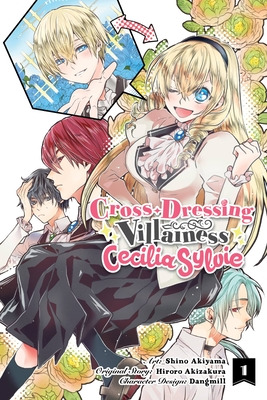
Start of a fun/silly isekai series.
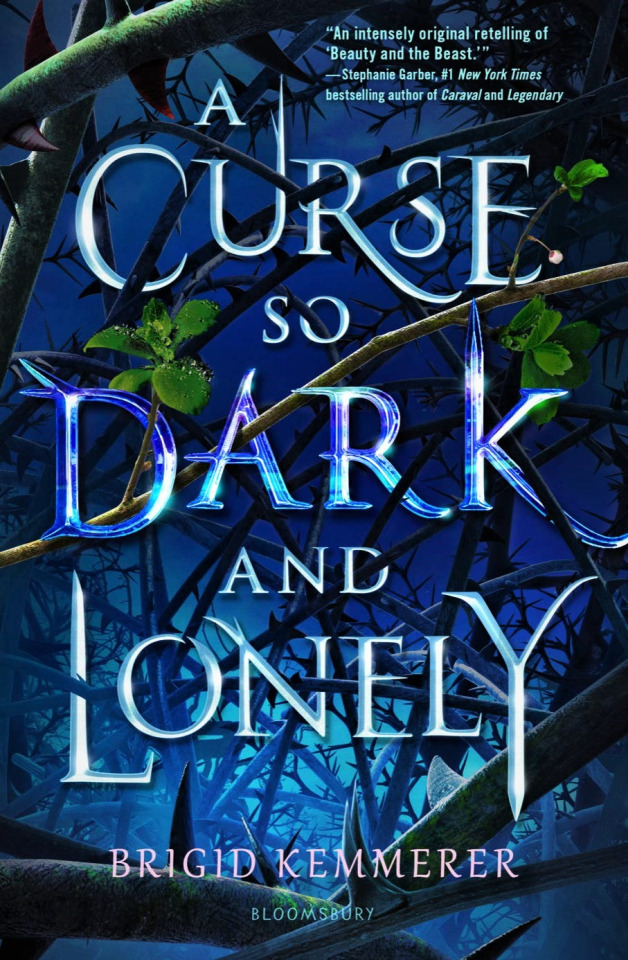
I’ll admit, I wasn’t enjoying the book at first, I liked Harper but there was a lot of “not like other girls” and the two main guys in the book were kinda dicks, but the writing itself was good and I remained curious as to the outcome and was hooked by the end.
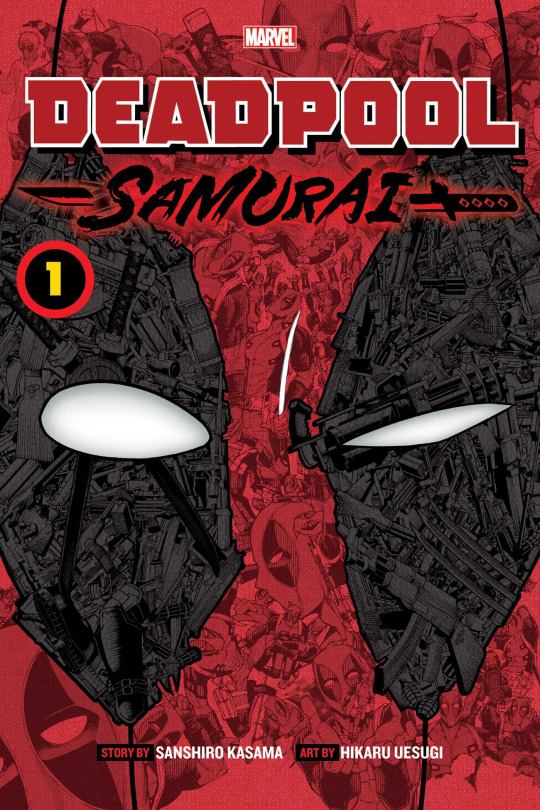
Very fun
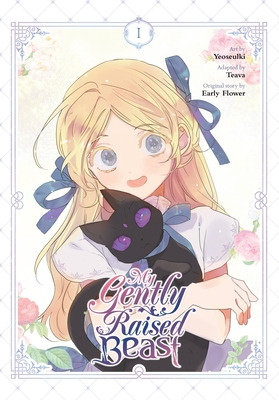
Have enjoyed this on webtoons and so was very happy to get it when it was published.
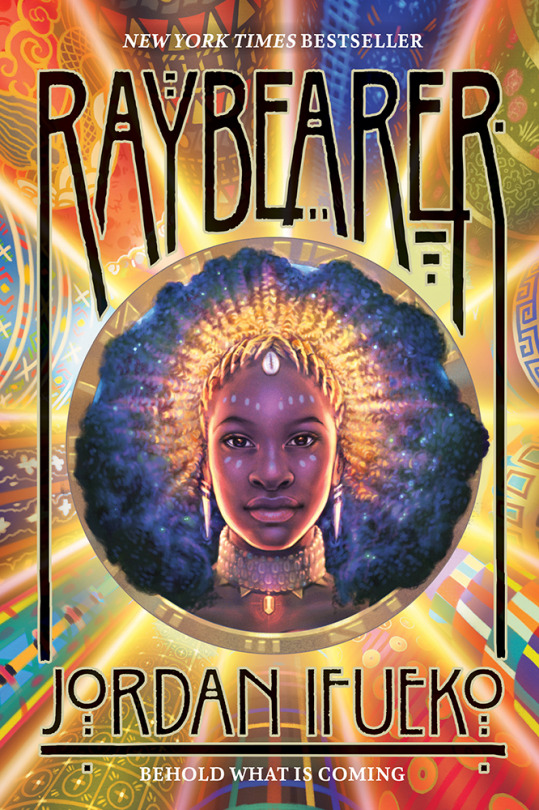
My friend got me this for Christmas and I couldn’t resist reading it right away. Very good decision on my part. ^_^

Totally picked this out of my tbr to try to meet my goodreads reading goal, I was like three or so away from it, and this is nice and short. Just a random sci-fi I had floating around from a thrift store or something but actually a delightful ya read.
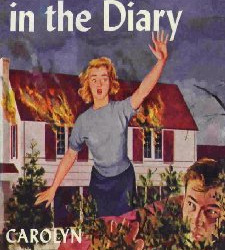
Another “complete goodreads challenge pick” but also a very fun read.
#December 2022#Booklr#Reading#Spy x Family#Tatsuya Endo#Chainsaw Man#Tatsuki Fujimoto#Magician: Apprentice#Riftwar Saga#Raymond E. Feist#crossdressing villainess Ceceilia Sylvie#Hiroro Akizakura#Shino Akiyama#A Curse so Dark and Lonely#Brigid Kemmerer#Cursebreakers#Deadpool Samurai#Sanshiro Kasama#Hikaru Uesugi#My Gently Raised Beast#Early Flower#Yeo Seulgi#Ray Bearer#Jordan Ifueko#Exiles of ColSec#Douglas Hill#The Clue in the Diary#Carolyn Keene#Nancy Drew
6 notes
·
View notes
Text
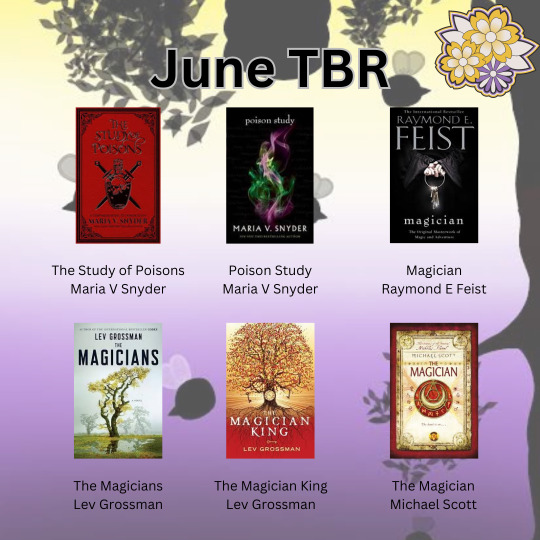
I seem to have accidentally stuck to a theme this month 😅 and only after reading The Study of Poisons did I realise how much, coz even the two without Magician in the title still have magicians as a major part of the story 😅
#poisonstudy#thestudyofpoisons#mariavsnyder#magician#the secrets of the immortal Nicholas flamel#michael scott#the magicians#lev grossman#raymond e feist#riftwar saga
6 notes
·
View notes
Text
Speaking of The Riftwar...
Here is another one of the fantasy series I do not like - but unlike the Thomas Covenant stuff, which I REALLY don’t like in an active me, this series I just... don’t “clock”. It doesn’t click with me, I don’t latch on, it doesn’t get my interest.
It is the very famous (and considered by some a classic) series “The Riftwar Cycle”. Well, not really - the Riftwar Cycle is the name of a massive multi-series of books written by Raymond E. Feist that takes place in a same fictional universe. The actual book series I didn’t click on with was “The Riftwar Saga”, the very first and most famous series of the Cycle.
I had heard for a long time the first book of the Saga, “Magicians”, described as one of those classics of fantasy that had to be read, the Riftwar books are always somewhere in bookshops, and Pug was often described as one of the “great wizard characters in fantasy literature”. So when I could get my hands on Magicians (well, the first part, Magician: Apprentice), I went ahead.
But as I said, I don’t particularly like the series or find myself desiring to read what’s next. It is not that the series is bad - I have seen truly bad fantasy books, and this is... well from what I have read (which is half of Apprentice) it is more of an “average” fantasy series. It is VERY reflective of the fantasy of the 80s, due to how kind of generic and not particularly creative or inventive the fantasy setting was. When reading a suspicion arose, and I went to check for it on the Internet, and I was right - this book series was originally a D&D campaign re-adapted as a book series, and honestly? It does feel a lot like it. Not in the good fun way though - it is just that you have the genericness to replace D&D specific stuff, and the way the story unfolds does remind and evoke a D&D session (which is not actually good for a book, because a book should feel like a book, not a long game campaign).
I can see why people like this series, and if it keeps appearing up everywhere it is for a reason. It is not badly written for sure, and honestly when I first read it I actually really got into it - the description of the characters, of the landscape, of the weather, the first scenes and chapters, all felt very good. But then it kind of started to slog and slug, slowing down for badly-handled relationship-friendship-budding love scenes between teenagers at a pseudo-medieval court, which was not interesting and a bit clunky (you felt it was written by an adult’s perspective of what kids and teens act like in the 80s, again you have a very 80s vibe throughout the book) ; and also you have the whole elves introducton which felt really on-the-nose, in-the-face, with no subtility at all... Another trait typical of most 80s, generic fantasy - no subtlety, all in bluntness, and all in rough simplicity. Sometimes it works well, sometimes it doesn’t. For me here it doesn’t.
But you know - I am pretty certain this series gets better while passing by (or I hope so). You see, it seems to be the kind of story that relies on the personal growth and evolution of the characters, that we see change through time, going from kids to adults, undergoing various positive or horrifying trials, going through life and building themselves as full characters as a result. Given how “generic” and “D&D-like” the setting is, I am expecting the strength and popularity of the books to come from their characters, not the world they evolve in. However, to follow them throughout this world, one needs patience and attention (because as I said, things go slowly). Patience and attention I unfortunately find myself loosing or not having because of all the reasons I said above. Though this being the very beginning where the character’s are not very developed and the world is just introduced to us, this might be on purpose... But I tend to be the kind of person who, if he doesn’t find anything to latch onto for at least half of the book, tends to give up on it.
I haven’t given up on the series however! Because I also have the first book of “Krondor’s Sons”, the third series of the Cycle and kind-of-sequel to the first series (like a “many years later, the descendants of the characters of the first series undergo their own quest”), and I hope this book will work better. Since after two entire series Feist will have had time to work out and flesh out his world, and develop his setting into something I hope feels more personal and less generic, I have some hopes for this series. You see, I have only read one other work of Feist, “Faerie Tale”, and I have really liked it. I didn’t fully love it because unfortunately it had some pretty big flaws (flaws that seem to manifest also in this early Riftwar Saga). The pacing for example in Faerie Tale turned out to be a nightmare, because the opening drags on and on, and the building of the tension is artificially lenghtened by padding scenes that actually kill said tension, and everything rushes unnaturally fast by the end, resulting in no time to breathe after long portion of us waiting for something to happen - clearly Feist had some troubles pacing his plotlines. But Faerie Tale was very imaginative, it played very well with a lot of concepts new to its day and that still work nicely today, and I do think it deserves its title as one of the classics of “faerie horror”, even though it is a flawed work and certainly not “great literature”.
So I know the guy is capable of writing entertaining (if flawed) things, has a good imagination to rebuild and reinvent things with his own personal touch, and can have some very clever and innovative ideas - unfortunately it seems to wait for the pay-off, one has to truly hold on when reading his novels, and with the Riftwar Saga I lost mid-way whatever I held onto. Again, I hope with Krondor’s Sons things will go better - and who knows, maybe as a result I’ll return to the Riftwar Saga. But while waiting, I’ll put it in the category of “Fantasy series I didn’t like”, though clearly not on the same shelf as the dreadful Thomas Covenant book.
0 notes
